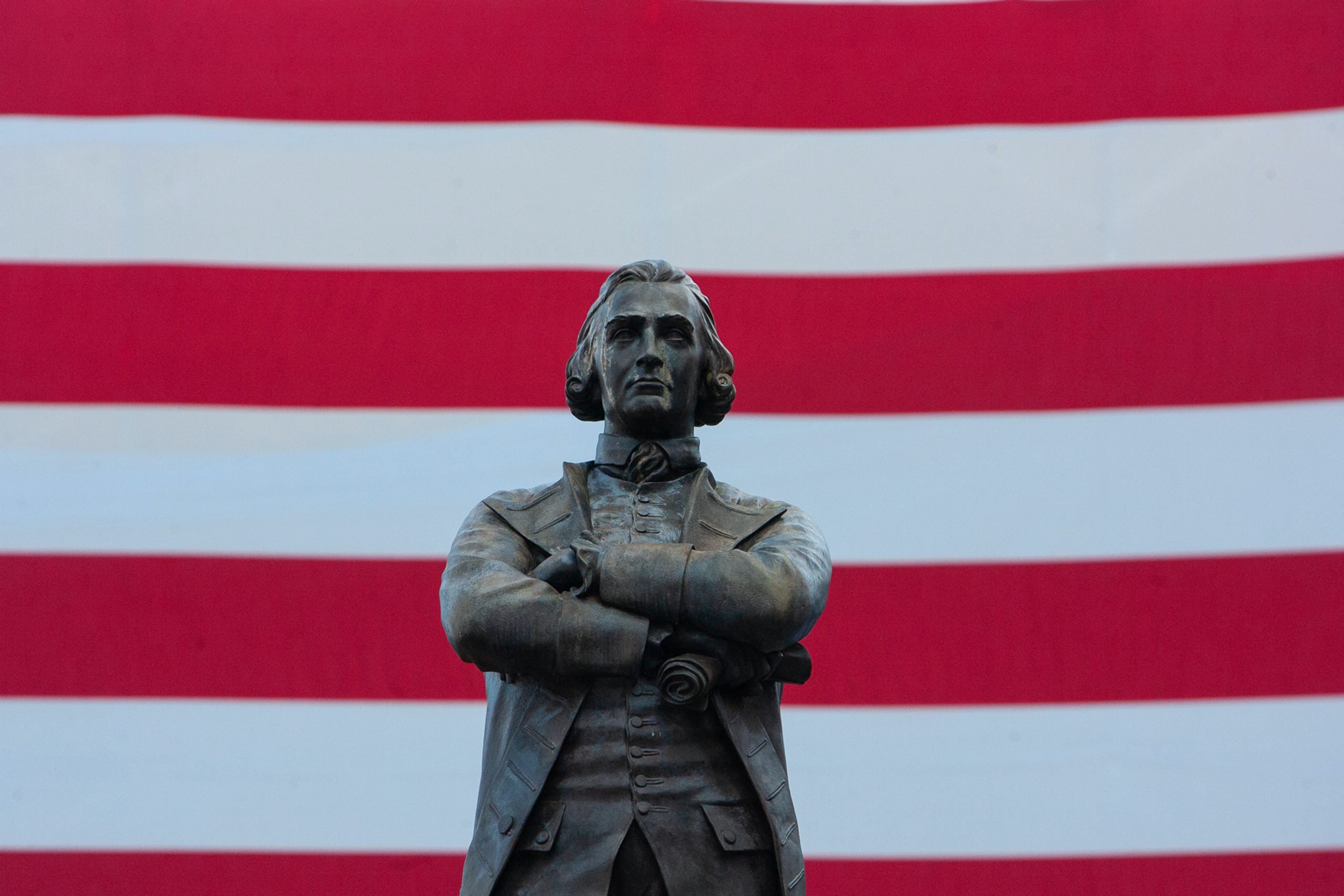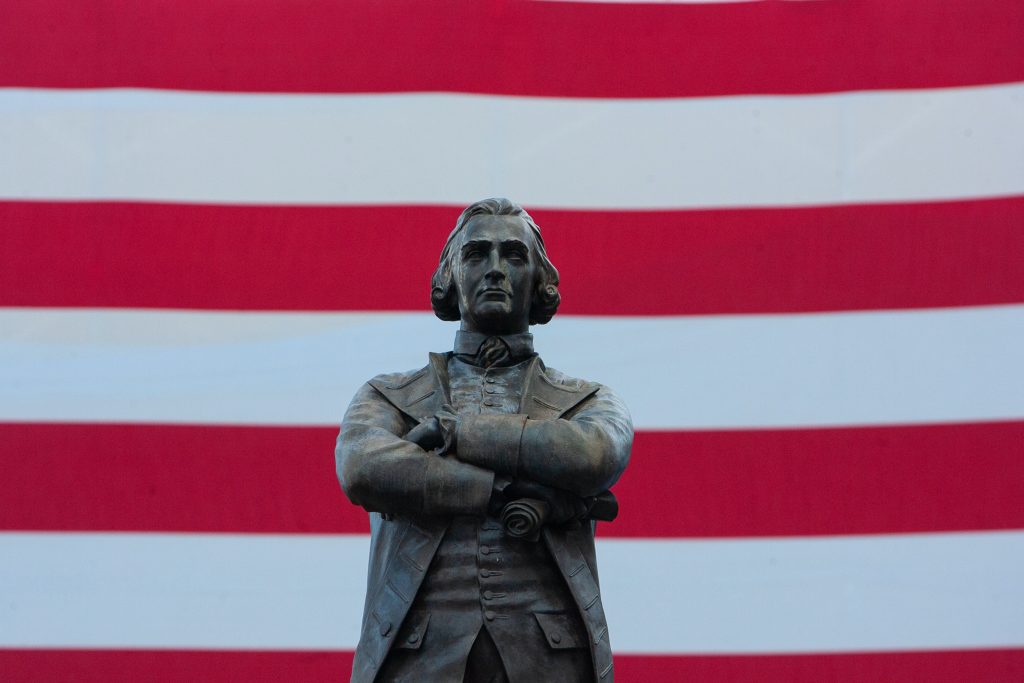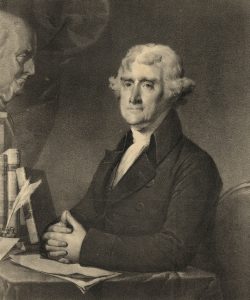

Thomas Jefferson, the third President of the United States and one of the Founding Fathers, was an avid reader with diverse interests. His reading preferences reflected his wide-ranging intellectual curiosity and his desire to explore various fields of knowledge. Here are some key aspects of Thomas Jefferson's reading preferences:
Enlightenment Philosophy: Jefferson was deeply influenced by Enlightenment thinkers such as John Locke, Francis Bacon, and Isaac Newton. He extensively read works on political philosophy, natural law, and the rights of individuals. His readings in this area greatly influenced his own political and philosophical beliefs, as evident in his drafting of the Declaration of Independence.
Classics and Ancient History: Jefferson had a great appreciation for the classics and ancient history. He read works by Greek and Roman philosophers, historians, and playwrights. He particularly admired the works of Plato, Aristotle, Cicero, and Tacitus. These readings shaped his understanding of governance, civic virtue, and the importance of learning from the past.
Science and Natural History: Jefferson had a keen interest in science and natural history. He read extensively in the fields of botany, zoology, geology, and paleontology. Jefferson believed in the importance of scientific knowledge and its practical applications. His personal library included scientific works by scientists such as Carl Linnaeus, Georges-Louis Leclerc (Comte de Buffon), and Alexander von Humboldt.
Travel Accounts and Exploration: Jefferson was fascinated by accounts of exploration and travel narratives. He sought to expand his knowledge of different cultures, geography, and discoveries made by explorers. He collected and read books on voyages, including those by Captain James Cook, Meriwether Lewis and William Clark, and Alexander von Humboldt.
Political and Historical Works: Jefferson was well-versed in political and historical writings, both contemporary and from earlier periods. He studied the histories of ancient Greece and Rome, as well as the history of England and Europe. He also read political treatises and contemporary works on the American Revolution and the formation of the United States.
Literature and Fiction: While Jefferson was primarily focused on non-fiction works, he did appreciate literature and fiction. He enjoyed reading works by authors such as William Shakespeare, Voltaire, Alexander Pope, and Cervantes. However, his collection of literary works was relatively small compared to his extensive non-fiction collection.
Thomas Jefferson's extensive personal library, which he famously sold to the Library of Congress to replace the books destroyed during the War of 1812, reflected his eclectic and wide-ranging reading preferences. His commitment to intellectual pursuits and his love for learning are evident in his extensive reading habits and the diverse subjects he explored.
Thomas Jefferson’s recommended reading list (hat tip - Classical Learning Test - Jeremy Tate):
ANCIENT HISTORY - The Histories, Herodotus - History of the Peloponnesian War, Thucydides - Anabasis & Hellenica, Xenophon - Life of Alexander the Great, Quintus Curtius Rufus - The Gallic War & The Civil War, Julius Caesar - Antiquities, Josephus - Lives, Plutarch - Annals & Histories, Tacitus - History of the Decline and Fall of the Roman Empire, Edward Gibbons
PHILOSOPHY - Works of Plato, Plato - Works of Cicero,Cicero - Morals, Plutarch - Moral Epistles & Essays, Seneca - Memorabilia of Socrates, Xenophon - Meditations, Marcus Aurelius - The Enchiridion, Epictetus - An Essay Concerning Human Understanding, John Locke - Dialogues Concerning Natural Religion, David Hume - Candide, Voltaire - Introductory Discourse and the Free, Inquiry, Conyers Middleton - Nicomachean Ethics, Aristotle
Literature/Epic Poetry/Plays - The Iliad & The Odyssey, Homer - The Aeneid, Virgil - Paradise Lost, John Milton - Oedipus Trilogy, Sophocles - Orestian Trilogy, Aeschylus - The Plays of Euripides, Euripides - Poems, Horace - The Works of Shakespeare,William Shakespeare - The Misanthrope, Moliere - Gulliver’s Travels, Jonathan Swift - A Modest Proposal, Jonathan Swift - Don Quixote, Miguel de Cervantes - The Adventures of David Simple, Sarah Fielding - The Adventures of Roderick Random, Tobias Smollett - The Vicar of Wakefield, Oliver Goldsmith - Tristram Shandy, Laurence Sterne - The Canterbury Tales, Geoffrey Chaucer - Poems, Edmund Waller
Politics/Religion/Modern History - Spirit of the Laws, Montesquieu - Two Treatises of Government, John Locke - Discourses Concerning Government, Algernon Sidney - The Bible - The History of America, William - Robertson - Historical Review of Pennsylvania, Benjamin Franklin - A History of the Settlement of Virginia, Captain John Smith
Science - On Electricity, Benjamin Franklin - The Gentleman Farmer, Henry Home - The Horse Hoeing Husbandry, Jethro Tull - Buffon’s Natural History, Georges-Louis Leclerc - Anson’s Voyage Round the World, Richard Walter
